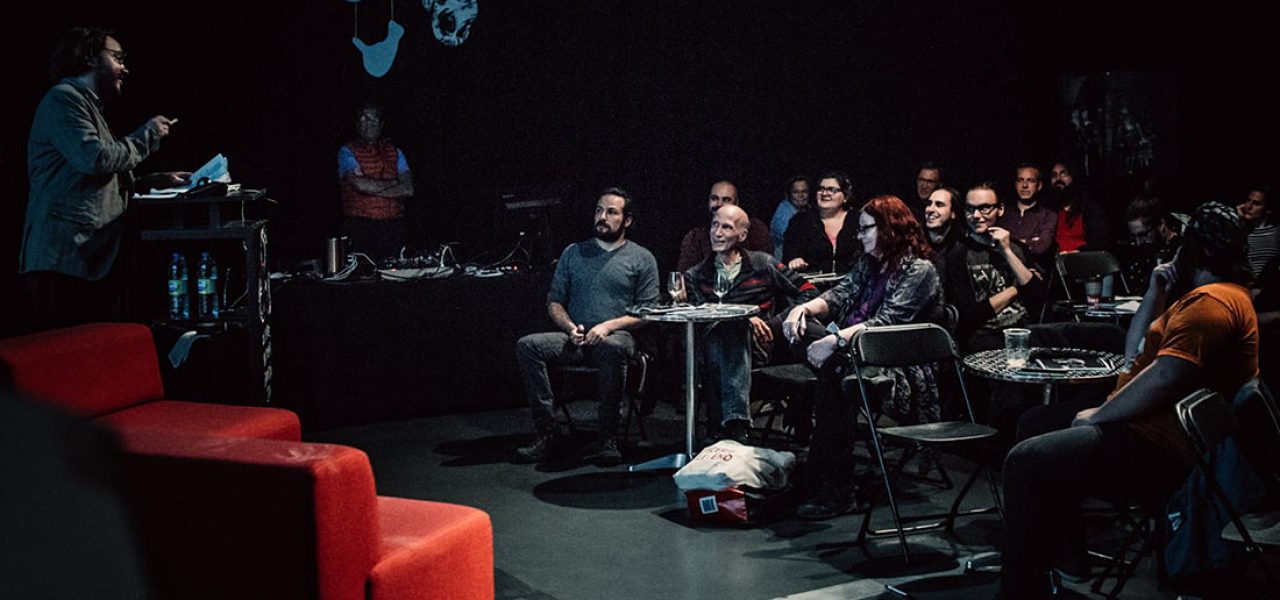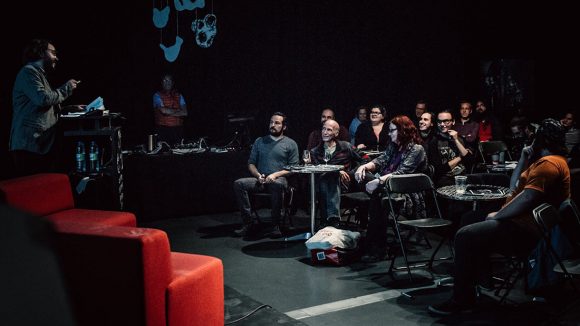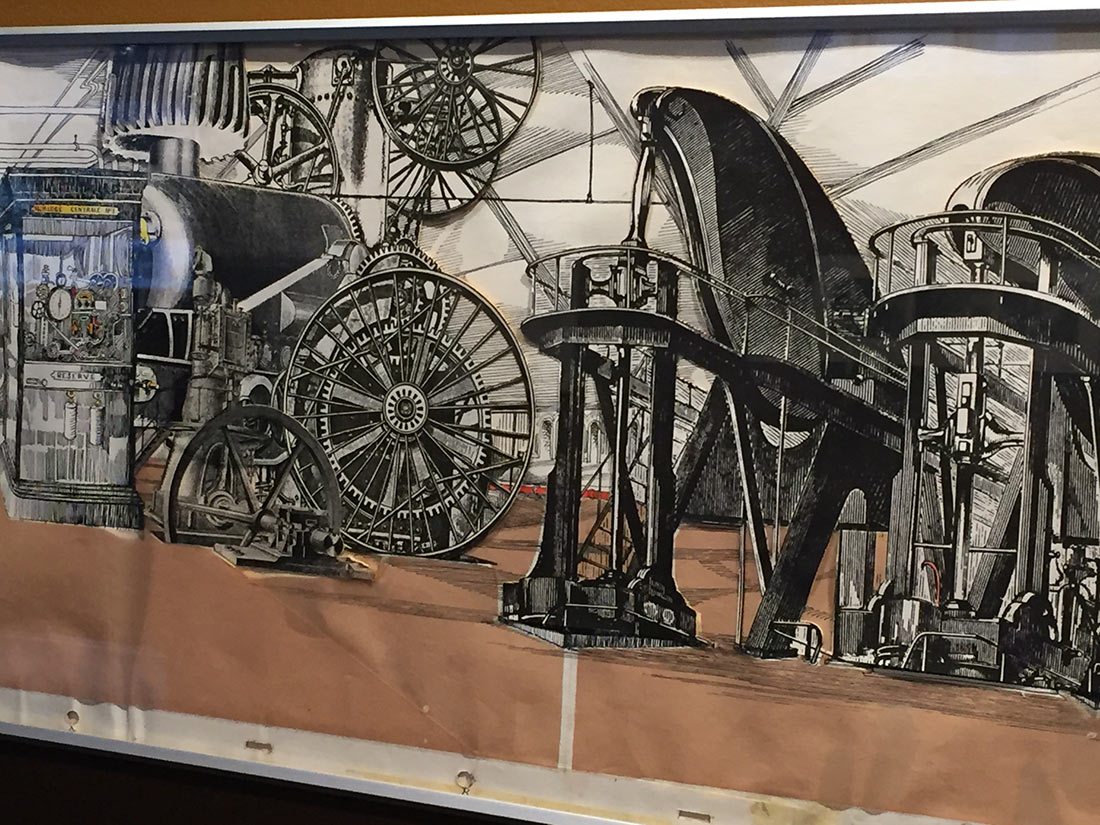

Sommets 2016: Montreal Is Totally Ready for Its Own Major Animation Festival
When I accepted an invitation to attend Montreal’s Sommets du cinéma d’animation (Nov. 23-27), there was one big question in the back of my mind: does Canada really need another major animation festival just a two-hour drive away from Ottawa, home to North America’s largest animation festival?
Then again, if you’re going to hold an animation festival in a city that already has an an appreciation for animation, you’d have trouble finding a better choice. And Montreal isn’t just an animation town; in the last two decades, it’s also become a vfx town and a video game town. There is a tremendous amount of growth happening there right now across all animation industry sectors, and that’s in addition to the thriving indie scene that exists in large part because the National Film Board of Canada is headquartered there.
Sommets it turns out isn’t even the only cartoon festival in town. At other other times of the year, there’s also Animaze and the Montreal Stop-Motion Film Festival. Sommets does have a few key advantages though. First, it’s been around longer than the others, having launched fifteen years ago as a modest series of screenings.
Second, the festival enjoys the backing of the Cinémathèque québécoise, a museum, repertory cinema, and archive of film documents and animation artwork. The festival’s artistic director is Marco de Blois, someone who lives and breathes animation and whose day job is animation curator of the Cinémathèque, a not-so-small task considering that the Cinémathèque owns one of the world’s phenomenal collections of original animation artwork. (A small exhibit of about 25 pieces from the archive’s collection was on display in the theater lobby, ranging from Dick Huemer drawings of Mutt and Jeff to original puppets from the films of Břetislav Pojar and Kihachirō Kawamoto, and I couldn’t help but spend some time every day marveling at those treasures.)

But even with this institutional backing and long history, if Sommets had to be summed up in a single adjective, I’d choose ‘low-key.’ This is not a flashy festival where parties run long into the night; you’re more likely to enjoy a long conversation at the Cinémathèque’s cafe, which always harbored a friendly face or two. And unlike the Ottawa animation festival in September which draws hundreds of Americans, Sommets is a mostly local crowd. I met at most perhaps a dozen Americans at Sommets, and just handfuls of Canadians who’d traveled from beyond the city limits.
Programming-wise, Sommets mixed both industry and independent, but there was never any question which direction it leaned. The festival presented an award this year to cameraless animator Steven Woloshen, while Oscar-winner Joan Gratz (Mona Lisa Descending a Staircase) and local filmmaker Diane Obomsawin gave masterclasses. The two features in competition, Window Horses and Louise en hiver, are both excellent films, but not the kind of programming designed to attract the industry crowds from the local cg/vfx/game shops around town. Of course, even if the programming was oriented more toward the mainstream and commercial, it’s unlikely that artists at those studios would be able to take time off work mid-week—or would have any desire to watch more animation after working a full day at the studio.

Still, Sommets isn’t immune to the industry either. There were multiple panels touting the participation of Framestore and other local vfx shops. A breakfast session in which ten or so local companies pitched their wares could have easily had five times as many companies represented, but it nonetheless showed that the festival is paying attention to contemporary happenings around the city.
There were talks too aimed at filmmakers, such as a discussion hosted by Michael Fukushima, executive producer of the NFB’s English Animation Studio, and filmmakers Eoin Duffy (The Missing Scarf) and Ann Marie Fleming (Window Horses). In their chat, they discussed nuts-and-bolts topics, such as crowdfunding, posting a film online, and dealing with distributors. Such discussions are all too rare at festivals, and that’s a pity because filmmakers need these type of forums to learn how to protect themselves from the industry’s wolves.
During the panel, Duffy stressed the importance of not being pushed around by film distributors and why filmmakers should fight to keep internet rights to their films. In dealing with distributor Shorts International, Duffy refused to accept an outrageously long years-long exclusive internet term for his short The Missing Scarf. But he discovered that if he stood his ground, Shorts Int’l would reduce their online exclusivity to a six-month period. Duffy took the deal, and promptly posted his film online after those six months, earning himself waves of online publicity for the film, which can be seen below:
Another program, “A Near-Perfect History of Animation,” was described in the program book as a scholarly talk on the history of animation from renowned historian Julien Bernatchez. A display case outside of the auditorium displayed a selection of Bernatchez’ books, including these:

As you’ve probably caught on, the whole thing was an elaborate gag (Bernatchez is a local comedian), and I’m assuming that almost everyone was aware of what they were getting into, though maybe not since there were a number of walk-outs early on in his talk.
The event was in French, but I was so intrigued by the concept that I decided to sit in for a while and experience it for myself. (For the record, my French is bad. Like, really bad. In France, I once told a waiter, “Je voudrais un Coke, monsieur,” and twenty minutes later he returned with a croque-monsieur sandwich.) Even with this significant handicap, I latched onto Bernatchez’ silliness (the Powerpoint images helped) and loved the concept.
Sommets also isn’t afraid to experiment. One of my favorite events was the Very Shorts Films competition, a selection of 33 shorts that were each under two-and-a-half minutes. I imagine something like this has been done before, but it’s not done often at animation festivals, and it’s a refreshing change of pace from standard festival programming.
If you’re looking for mood or atmosphere in the ultra-short format, forget it. But it’s the perfect length for exploring an experimental visual concept or garnering a quick laugh. It’s also a win for the audience. Don’t like a film? Just wait 150 seconds and another one will turn up.
Below are two of the 33 shorts in the program: Tekkol by Jorn Leeuwerink and Somewhere in between by Martine Frossard:
While many of the same faces show up at both Ottawa and Sommets, Montrealers showed a lot of enthusiasm for their local festival. For good reason too—they produce a lot of independent animation in Montreal and the Quebec province in general. In fact, I don’t think I’ve ever seen so many locally produced films represented at a festival as at Sommets.
The opening night of Sommets drew a packed house to the Cinémathèque, which isn’t uncommon for a festival opening night, but the surprise was that the crowds never stopped. The main theater was filled for nearly every screening I attended, and twice it was sold out when I tried to get tickets.
The packed houses even took Marco de Blois by surprise. In the event’s fifteen-year history, he told me that the event had never experienced such a turnout before. Sommets may still be low-key in the years to come, but if this year was any indication, it probably won’t be small anymore.
2016 Sommets Awards
Framestore Award for the best film of the International Student Competition
In other Words, Tal Kantor (Israel)
International Student Competition: Special mention
How are you today?, Sophie Markatatos (UK)
International Competition of Very Short Films
Stems, Ainslie Henderson (UK)
Public Award
Wednesday with Goddard, Nicolas Ménard (UK)
International and Canadian Competition
Sommets Grand Prize
It Would Piss Me Off To Die So Yoooooung…, Filipe Abranches (Portugal)
Special Mention:
4min15 in the Developer (4min15 au révélateur), Moïa Jobin-Paré (Canada)
Special Mention:
Jukai, Gabrielle Lissot (France)
Guy-L.-Coté Award for the best animated Canadian film
I Like Girls (J’aime les filles), Diane Obomsawin (Canada)
Special Jury Award:
Wednesday with Goddard, Nicolas Ménard (UK)

